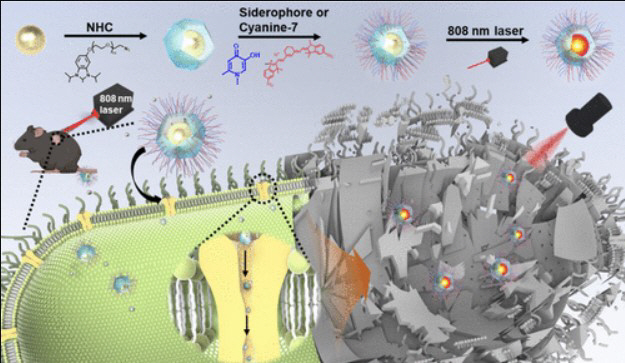A new way to catch super bacteria...Domestic research team develops new antibiotics to overcome resistance by incorporating nanotechnology
Apr 08, 2025
|
Superbacteria are high-risk bacteria resistant to antibiotics, and the World Health Organization (WHO) has warned that superbacteria will become the "next pandemic".
The Korea Research Institute of Biotechnology said Dr. Ryu Choong-min's research team at the Infectious Disease Research Center has developed new antibiotics based on gold nanoparticles and lipid nanoparticles that can effectively control super bacteria. This achievement was published in February in the international journal `ACS Nano' (ACS Nano) in the field of nanoscience.
The research team has developed a bio-nanotechnology that can selectively kill specific pathogens while protecting beneficial microbial communities. We designed a new concept of nanoparticles by combining gold nanoparticles with 'sideropore' (sideropore), an organic material that moves iron necessary for the survival of superbacterial Pseudomonas aeruginosa into cells. On top of that, when light of a specific wavelength (near-infrared light) is treated, gold nanoparticles entering bacteria instantly generate hundreds of degrees of heat to kill Pseudomonas aeruginosa. Experiments using a skin-infected mouse model confirmed that the wound healed quickly without affecting immune cells or normal skin tissue..
In addition, as a result of designing and conducting a new lipid nanoparticle capable of delivering the dielectric editing system 'Crisper Cas 13a gene scissors' (CRISPR-Cas13a), it was confirmed that the genetic material entered the bacterial body by the lipid nanoparticles caused fatal gene editing and successfully suppressed sepsis.
This article was translated by Naver AI translator.














